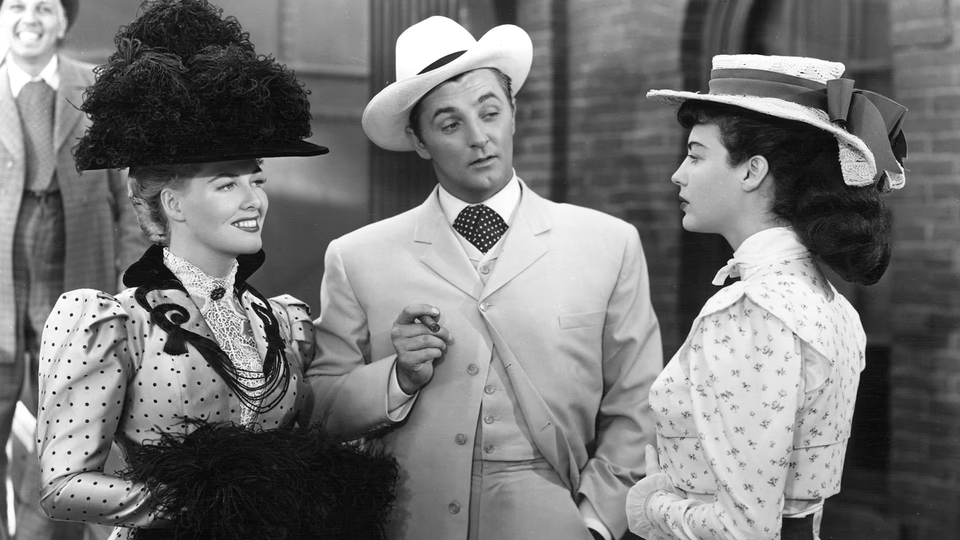My Forbidden Past

I hated this movie seventeen years ago. Now? I half-enjoyed it. Either I’m mellowing with age or my standards are slipping.
Set in turn-of-the-century New Orleans, this Southern Gothic melodrama stars Ava Gardner as Barbara Beaurevel, a woman scorned who transforms inherited money into a weapon of romantic revenge. When her beloved Dr. Mark, played by Robert Mitchum, returns from South America with a wife, Barbara bribes her oily cousin Paul, played by Melvyn Douglas, to seduce the new bride. You can guess how well that works out.
This is a Howard Hughes production, and it shows. Expensive production, messy execution.
Some scenes crackle with terrific dialogue. When Gardner asks her servant to leave her alone with an aging solicitor, the servant says, “I’ll be in shouting distance.” The solicitor replies without missing a beat: “Thank you, that’s a great compliment.” Beautiful.
Douglas steals every scene he’s in, delivering lines like “Don’t do any thinking—it’s bad for the complexion” with an eely smile. Mitchum dismisses him as a man with “a little charm, less talent, and no honor.” These zingers are worth the price of admission.
But these sharp moments are sprinkled like croutons atop a salad of mediocre melodrama. Filmed at the end of 1949, Hughes fiddled with the editing for over a year, finally releasing the film in spring 1951.1
This tinkering shows. The opening feels spliced from another film—Mitchum in an open-collar shirt with erupting chest hair and uncomfortably high-waisted pants, Gardner in an unflattering peasant blouse with blooming shoulders. The finale arrives like someone remembered they had to end the movie, injecting a surprise twist in the final twelve minutes.
And, despite his top billing, the final product isn’t really a Mitchum picture. It’s Gardner’s movie, her story. And she’s good. Her confrontation with Mitchum’s wife drips venom behind icy smiles. She conveys volumes through her eyes. Watch her wardrobe shift from white to black as her character darkens—not subtle, but effective.
Still, nobody escapes the clunkier scenes. Late in the film, Gardner tells Douglas, “You once said we were both nauseating people”—referring to something he said in their last conversation earlier that evening. Hughes’ editing or multiple script drafts? Either way, you sense a troubled production.
I called this “a waste of a good cast” back then. I’ll be kinder now: it’s a flawed film with some genuine pleasures. Sometimes that’s enough.
Notes
-
Lee Server, Robert Mitchum: “Baby I Don’t Care” (St. Martin’s Press, 2002), 206. ↩︎